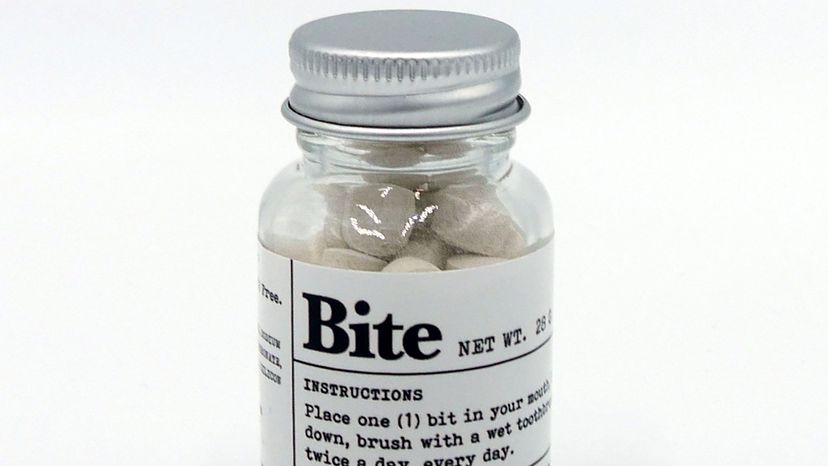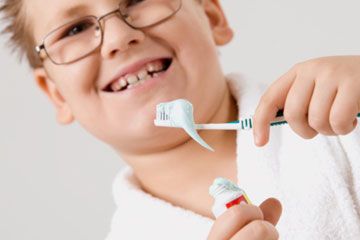
Toothpaste has been around since the ancient Egyptians. The tube was introduced as packaging in 1892. Since then, except for ingredients, not much has changed. Until now.
Toothpaste tablets are chewable versions of the paste we all grew up with. Well, not quite. There's more, and less, to them than that. You simply put one in your mouth, chew to break it up and brush as you normally would. The tablets crumble and foam as you brush, (no water needed), and there are all-natural and vegan-friendly options available as well. According to Lindsay McCormick, founder of Bite Toothpaste Bits, they also could help eliminate the more than 1 billion plastic toothpaste tubes that are destined for landfills every year.
Advertisement
Though there are tablets on the market that ship in plastic, McCormick's product ships initially in a reusable glass bottle, with refills provided in compostable plastic. Determined to minimize the plastic in landfills and chemicals in our bodies, McCormick is helping lead the way with this product, selling more than 8 million units in six months. Toothpaste tablets are a bit more expensive than traditional toothpaste in a tube and are generally not yet available in grocery stores or pharmacies, though they are easily ordered online.
Regarding the ingredients in toothpaste, some tablet manufacturers work to eliminate what can be harmful, including fluoride, thereby making it safer for children. Too much fluoride can be toxic for them, resulting in fluorosis. In fact, the FDA has placed warnings on fluoride toothpaste, cautioning that if children (under six) swallow more than needed for brushing, poison control should be contacted.
With toothpaste sales topping 300 million tubes in the U.S. alone in 2018, toothpaste tablets have a long way to go to make a dent in the tube. But with growing interest in ways to keep both our bodies and our planet healthy, toothpaste tablets could take a bite out of the market.
Advertisement

